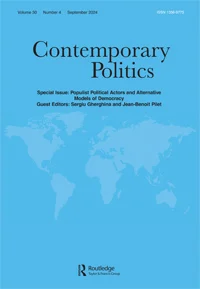The development of deliberative procedures raises a series of challenges for political parties. Despite the recent development of fruitful theoretical insights and empirical research, to date, the analytical dimensions have not been put together to facilitate the study of the interaction between parties and deliberation. This paper seeks to address this gap in the literature and proposes a framework that can explain why parties use deliberative democracy. It connects three bodies of literature: intra-party democracy, parliamentary activity, and connection with the citizenry. The article proposes an analytical framework that differentiates between issues (people and policies) and the goals (strategic objectives and normative goals). This framework brings relevant theoretical, methodological, and empirical contributions to the broader field of the study.





